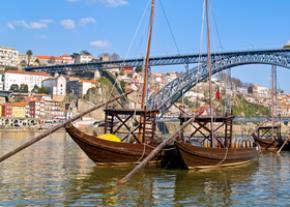As the Western most country of mainland Europe, Portugal is sandwiched between the Atlantic and Spain and enjoys a Mediterranean climate that is one of the warmest in Europe. But despite its peripheral location, the country has always been an important member of European politics, and was one of the first members of the eurozone economic and monetary union.

Portugal is divided into 18 mainland districts, each taking the name of its major city, and a further two autonomous regions, the Atlantic archipelagos of Azores and Madeira. Three metropolitan areas with more than 500,000 inhabitants – the capital city, Lisbon, and the two northern cities of Braga and Porto, which the country is named after.
As a member of the European Union (EU), nationals from other EU states can enjoy free movement to the country to live, work, study, or retire, and Portuguese citizens can do the same in other EU states. Further, its membership of the Schengen Area means visa free travel to 25 other EU member states for citizens and valid Portuguese visa holders.
Globally, the country’s history as a colonial power means it now enjoys close relations with a number of its previous colonies, perhaps most notably Brazil, which it retains a dual citizenship treaty with.
Portuguese Economy
Tourism a big contributor to the Portuguese economy, making up around 5% of GDP, with Lisbon, Porto and Algarve being the traditionally popular tourist hotspots. Most tourists come from Britain, France, Spain, Netherlands, and Germany.
Financially, the country seems to be recovering after the global financial crisis, which affected Portugal severely, and as a result of loan conditions the government had to cut back on public spending. Unemployment appears to be falling after the country witnessed record numbers at the beginning of 2013 of 17.7%, as by the end of the same year it had dropped to 15.6%.
Over the past two decades, Portugal has been working to shift its economy from a public consumption based one, to one that is more focussed on exports, private investment, and the high-tech sector. As a result, business services are now more lucrative to the country than previous big revenue areas such as cork, textiles, wood products, footwear, and beverages.
Portuguese Culture
Despite its strong Catholic background (over 80% of the population are Roman Catholics), Portuguese laws and customs can be very liberal – it was one of the first countries in the world to legalise same-sex marriage, and the first country in the world to completely decriminalise the usage of all drugs.
Though anyone considering moving to Portugal for the long-term would be well advised to learn Portuguese, English is widely spoken. In fact, according to the EF International English Proficiency Index, the level of English proficiency exceeds that found in many other Western European nations that don’t have English as an official language – Spain, Italy, and France included.
